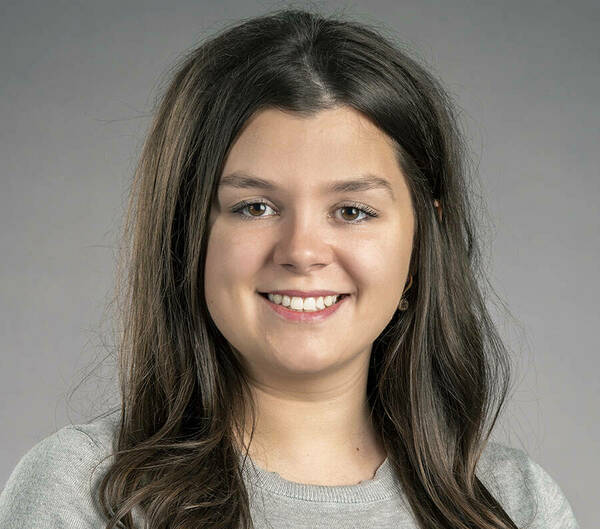
Erica Loding coordinates human rights-related programming, manages student internships, and provides administrative support for the Klau Center. She holds an MA in International Relations from Michigan State University, where her research focused on the role of human rights non-governmental organizations (NGOs) in the incorporation of international law into domestic policy.
Your position at the Klau Center calls for a wide range of skills. How has your educational and work profile prepared you for this challenge?
I am lucky to have a job where my work feels different each day. I enjoy the process of coming up with new and interesting events for our students and campus community to more deeply engage with issues of civil and human rights. I also enjoy helping with the curriculum process for the Center, making sure there are a variety of courses offered on civil and human rights each semester.
I received my master's degree in political science from Michigan State University, where I studied international relations and comparative politics. This gave me the opportunity to greatly expand my understanding of the substantive issues of human rights in the world today. I also realized I really liked working with students, having served as an instructor for some courses while I was in graduate school. This motivated me to pursue a career path 1) in human rights, and 2) that would be student-facing at a university. An added bonus of having taught some courses, is that I better understand the faculty perspective. This is beneficial information when working to establish opportunities that are mutually beneficial to students and faculty. I have also held a number of administrative positions at different universities. This practical experience equipped me with an understanding of the institutional structures in higher education.
You have a lot of experience working with human rights bodies across the globe. Can you discuss some of the issues you've tackled at these institutions?
The majority of my experience comes from studying the International Criminal Court. I spent time in The Hague, Netherlands—an epicenter of international law—examining the interplay between the Court, states, civil society, and individuals. For example, I wanted to know how the work of the Court affected situations on the ground in states. Do investigations of the Court only serve to further inflame the violence on the ground? I asked this question of former Chief Prosecutor Luis Moreno Ocampo during a press conference at the Court when it issued an arrest warrant for Muammar Gaddafi in Libya.
"Our students are ambitious, talented, and leaders for improving civil and human rights. I feel privileged to help them achieve their educational and professional goals during their time at Notre Dame."
Are there particular human rights issues that have held your interest? Why?
My graduate research focused on the role of incorporation in helping states to achieve compliance with international law. When a state ratifies an international statute, it is supposed to draft and implement domestic legislation to uphold the values of the statute. In the case of the International Criminal Court and its governing document the Rome Statute, states are supposed to create domestic policy criminalizing war crimes, crimes against humanity, and genocide; the Court is only supposed to be a "court of last resort" if states themselves are unable or unwilling to prosecute an individual.
I was interested in understanding why some states seemed to incorporate these provisions of the Statute into their own legislation, while others did not. I found that the role of civil society—specifically, human rights organizations—had a major impact on incorporation. The more human rights organizations within a state, the more likely they were to incorporate the provisions.
What attracted you to the Klau Center?
Working at the Klau Center has given me the chance to work in my field of study, on issues I am passionate about, with students that hope to make the world a better place. Our students are ambitious, talented, and leaders for improving civil and human rights. I feel privileged to help them achieve their educational and professional goals during their time at Notre Dame.
You work to build student and faculty involvement at the Klau Center. What does a good student/faculty community look like to you? What hopes do you have for the future of the Klau Center community?
The best community is one where student-faculty engagement benefits both parties. I hope to help facilitate more research assistant opportunities for students working with the Center's Faculty Fellows. I also hope to offer more internship and service opportunities to our students in the areas of civil and human rights.